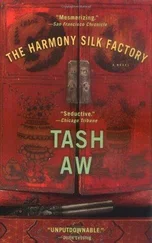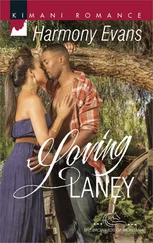Itoh, Project - Harmony
Здесь есть возможность читать онлайн «Itoh, Project - Harmony» весь текст электронной книги совершенно бесплатно (целиком полную версию без сокращений). В некоторых случаях можно слушать аудио, скачать через торрент в формате fb2 и присутствует краткое содержание. Год выпуска: 2010, Издательство: Haikasoru/VIZ Media, Жанр: Старинная литература, на английском языке. Описание произведения, (предисловие) а так же отзывы посетителей доступны на портале библиотеки ЛибКат.
- Название:Harmony
- Автор:
- Издательство:Haikasoru/VIZ Media
- Жанр:
- Год:2010
- ISBN:нет данных
- Рейтинг книги:4.33 / 5. Голосов: 3
-
Избранное:Добавить в избранное
- Отзывы:
-
Ваша оценка:
- 80
- 1
- 2
- 3
- 4
- 5
Harmony: краткое содержание, описание и аннотация
Предлагаем к чтению аннотацию, описание, краткое содержание или предисловие (зависит от того, что написал сам автор книги «Harmony»). Если вы не нашли необходимую информацию о книге — напишите в комментариях, мы постараемся отыскать её.
Harmony — читать онлайн бесплатно полную книгу (весь текст) целиком
Ниже представлен текст книги, разбитый по страницам. Система сохранения места последней прочитанной страницы, позволяет с удобством читать онлайн бесплатно книгу «Harmony», без необходимости каждый раз заново искать на чём Вы остановились. Поставьте закладку, и сможете в любой момент перейти на страницу, на которой закончили чтение.
Интервал:
Закладка:
“At the beginning of the twenty-first century, jungle gyms were made out of metal—geometric lattices made of crisscrossing pipes.”
“Kids would fall off the top?”
“They sure would. Jungle gyms back then didn’t catch them like the ones do now. Metal bars aren’t intelligent. They can’t change, and they aren’t even soft. Some kids hit their heads on the bars and died of skull fractures. And the sandboxes were breeding pools for viruses and bacteria. The park was a very dangerous place.”
I hadn’t the faintest idea why this person, arguably the strangest girl in class, was giving me an archaeological lecture on the history of jungle gyms. At least by then I had regained enough presence of mind to play along.
“So,” I ventured, “what we call parks nowadays are very different from what they used to be.”
She shook her head. “Not really. The look of the park hasn’t changed for a century. There are trees and things to play on. There were kids back then who sat on benches reading books like I was just now. What’s different is that the sand in the sandbox and the jungle gym and the climbing ropes weren’t intelligent. They didn’t care what happened to the kids that played on them.”
“Sorry, that thing you were looking at just now, that’s a book?” I asked.
“That’s right, Tuan Kirie. I was reading a book. I always carry one around with me. I usually read it during breaks in class.”
Miach pulled her book out of her bag and showed it to me. The cover read An Unremarkable Man .
“Doesn’t sound that interesting.”
Miach laughed at that. “As I thought! I know I have a tendency to fade into the woodwork, but still, I’m amazed you haven’t noticed me before—that girl always off on her own, always reading some strange thing . You don’t pay much attention to your surroundings, do you?”
How hadn’t I noticed her? Practically the only girl who didn’t join in any of the class groups, reading some strange artifact during recess? I thought for a moment that maybe no one had noticed her but immediately dismissed that. With all the initial interest in making friends with Miach, the other kids must have seen her, wondered about her. I was the only one oblivious.
“It’s because you don’t want to pay attention to people. You don’t want to try to be friends. That’s who you want to be, isn’t it? You run with the other girls in their little groups, and you go out to volunteer on the weekends, but the person you’re most concerned with is yourself. You don’t give a rat’s ass about harmony. That’s why you didn’t even bother to notice me and my book.”
She was right.
She was right, and I was sure no one else but she had ever noticed this about me. It took me a while to regain my footing as I considered how to respond. All I managed was a completely tangential, and ultimately stupid, observation.
“Aren’t books kind of heavy and hard to carry around?”
“Yes, they are heavy and hard to carry around, Miss Kirie. Being heavy and hard to carry around is downright antisocial behavior these days, don’t you think?” she said in a voice like a boy soprano’s. And then she began to walk, holding her bag in her hands behind her back. I’m not sure to this day why I followed her. I only remember that it seemed as if what she said, her every word, was cutting into the heart of something I’d been unable to express for so long, and hearing her say it felt good. Or maybe it was that she had found an old blade inside me, rusty from seawater, and given it a bit of a sharpening. Incidentally, when I asked Cian about how she met Miach sometime later, she said she’d met her in the park too.
“So,” Miach said, without turning around. “Q: if a person goes their whole life without falling from anything, how will they know what it means to fall?” I could only see the back of her head, but I was sure she was smiling.
“You’re talking about the jungle gym.”
“Not only that, but good enough.”
“Isn’t it instinct to be afraid of falling?”
It seemed to me pretty unlikely that someone could really go their entire lives without ever falling once, but even if someone managed it, I felt that somehow they would still have a fear of falling in their head.
Miach sighed, a sort of noncommittal sigh neither affirming nor denying my theory.
“So that’s your answer? It’s human nature to be afraid of falling—we’re just made that way?”
“Yeah.”
“Have you ever fallen off something?”
In fact, I had. It was when I was still pretty young. We’d gone camping, and I slipped off a boulder and fell into a stream. I could remember the instant it happened. You hear people talk about how time slows down during an accident, but for me it seemed like as soon as I realized my feet were slipping I was on my knees in the water.
I had scraped my leg on my way down, and when I looked at it, I saw a thin line of color emerging from my right calf, curling off into the slightly cloudy water like a red ribbon. A little trout had gone swimming through it, and I thought he might get tangled in the thread, but of course he didn’t. A moment later my father was helping me out of the stream. He used his portable med kit to fix my scrape, but I still remember what it looked like, that red thread of blood, drifting almost sensually in the water. The medicule paste—the same stuff that Miach claimed could kill fifty thousand people—quickly sealed the cut while the same medcare tank made antibodies to kill any infectious bacteria I might have picked up. My father attached the unit to the medcare port beneath my shoulder blade.
“What did it feel like, the moment you fell?”
Miach stopped and turned toward me. I answered honestly that it had been over so quick I didn’t remember feeling anything. One moment I was on the boulder, the next I was in the water.
“Oh.”
Miach shrugged and began walking again. I followed along behind.
“So you think someone who’s never taken a fall in their life wouldn’t be afraid of falling?”
“I didn’t say that. But they could forget their fear. Just like we’re forgetting what disease means.”
“Disease is when you get older more quickly and your muscles stiffen up.”
Miach looked over her shoulder, a smile on her lips. “That’s what it means now, true, but that refers to only one condition that affects a few unlucky people with some unlucky genes. I didn’t mean that kind of disease. I mean just getting sick . Like catching a cold or having a headache. Ever heard of those?”
I shook my head.
“In the past, there were lots of diseases in us, thousands. Everyone got sick, and this is only half a century ago I’m talking about. When the nuclear warheads fell during the Maelstrom, everyone got cancer from the radiation. The whole world was one big disease.”
“Oh, I learned about that.”
Many people developed cancer from the radiation. At the same time, the radiation caused mutations in China and the depths of Africa, spawning a flood of unknown viruses. With such a clear and present threat to its health, the world transformed overnight from a capitalist society monitored by governmental units to a medical welfare society organized by admedistrative bodies.
“Right? I’m not sure why I have that memorized. Impressed?”
“Yes, but they never tell you about how people used to get sick before then. You may have your history lesson memorized, but you don’t even know what a cold is. How could you? You’ve never experienced one. Our society’s accomplished a pretty amazing thing. Thanks to WatchMe and medcare, we’ve driven almost every disease off the face of the planet.”
Читать дальшеИнтервал:
Закладка:
Похожие книги на «Harmony»
Представляем Вашему вниманию похожие книги на «Harmony» списком для выбора. Мы отобрали схожую по названию и смыслу литературу в надежде предоставить читателям больше вариантов отыскать новые, интересные, ещё непрочитанные произведения.
Обсуждение, отзывы о книге «Harmony» и просто собственные мнения читателей. Оставьте ваши комментарии, напишите, что Вы думаете о произведении, его смысле или главных героях. Укажите что конкретно понравилось, а что нет, и почему Вы так считаете.












